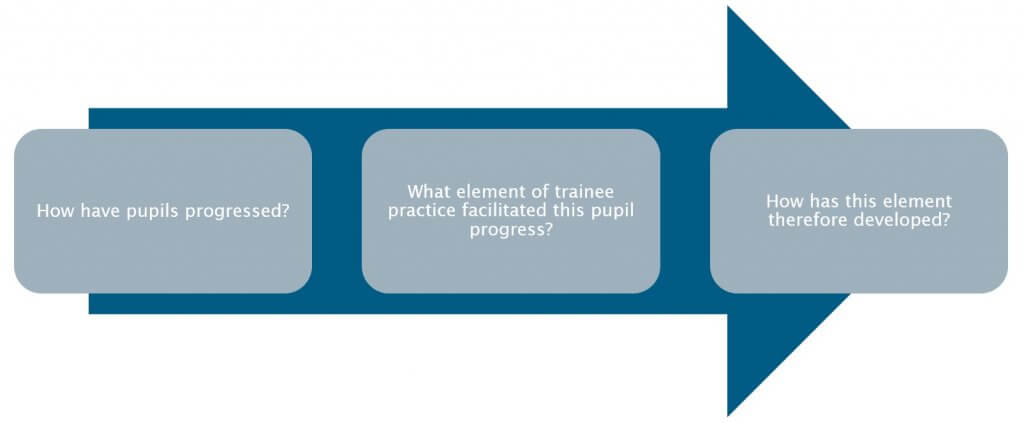Following a lesson observation, feedback should be given through the process of a delayed debrief. Good feedback is well-timed, ideally within 24 hours. It is helpful to be honest and note the positives first. In giving feedback, CMs are asked to keep the following in mind:
- A balance between positive encouragement and constructive criticism should be achieved.
- Praise and encouragement should be purposeful, relating to aspects of the lesson against the Standards – any more than this can seem false and patronising.
- Using the reflective framework, trainees should reflect on their practice referring to their learning in university and their wider reading
If feedback is to work:
- it should focus on behaviour rather than on the person (i.e. what the trainee was doing not what they are like as a person);
- it should be directed towards actions and issues the trainee can do something about;
- it must be acceptable to the receiver.
Good practice in giving feedback involves:
- being positive;
- a balance between listening and talking, challenging and supporting;
- structure to the session.
Giving Feedback
At the start of each debrief, the first question to be considered is:
- Did the children make progress in the lesson?
If it is decided that the children did make progress, then the discussion should explore how have they progressed and follow this line of progression to identify improvements to the trainees’ practice:

During feedback, the trainee, guided by the reflective framework and encouraged by the mentor, should talk through the lesson (this helps with judging if the trainee is able to evaluate lessons effectively). Ask questions like:
- What were you trying to achieve at this point (in the lesson)?
- How did you feel about this part?
- Could you have achieved that another way?
- What was the pupil involvement here?
- How could you have got some (or more) interaction going?
- At what points in the lesson did the pupils really have to think?
- How does this relate to the pupils’ existing knowledge?
- How did you check if that objective has been achieved?
- What did the pupils learn?
Mentor’s asking ‘why’ questions will challenge the trainee, but these need to be balanced with other types of questions to avoid monotony within the feedback.
At the end of the feedback, encourage the trainee to summarise what has been agreed by you both and ensure you finish on a positive note, e.g. reaffirm the praise for the aspects the trainee has identified as going well in the lesson.
Trainee’s Expectations
The following list of qualities is taken from Fletcher (2000) and is a summary of the qualities a group of PGCE trainees from Bath University expected to see in a mentor when giving feedback:
- being honest, approachable, friendly and a good listener;
- giving (and taking) constructive criticism about teaching;
- being able to pinpoint areas in the trainees’ teaching where they feel week;
- working with trainees to improve these areas of weakness;
- being prepared to raise and discuss those areas that are difficult to discuss and delicate but vital to development.
Reference
Fletcher, S. (2000) Mentoring in Schools: A handbook of good practice. London: Kogan Page.
